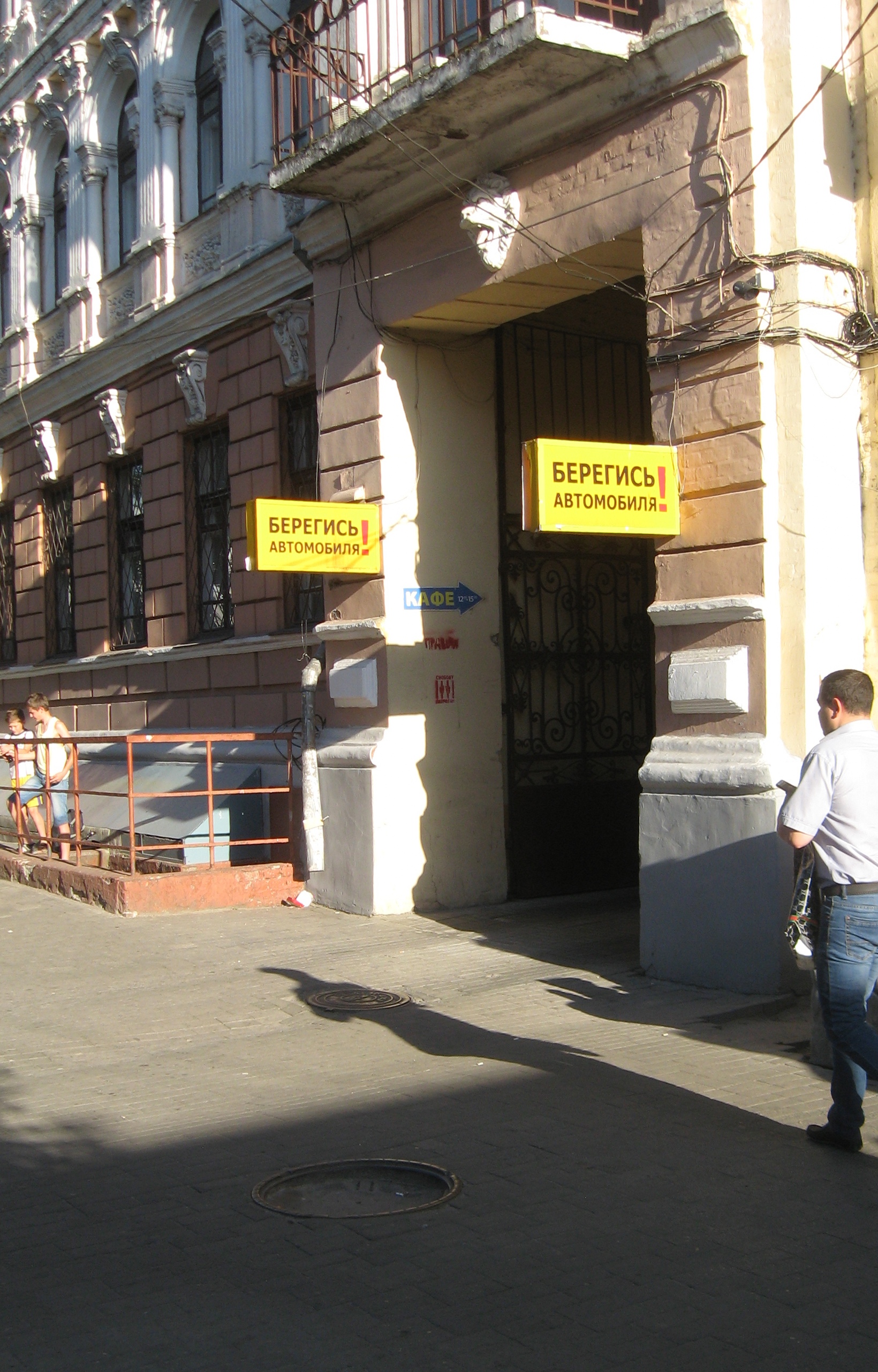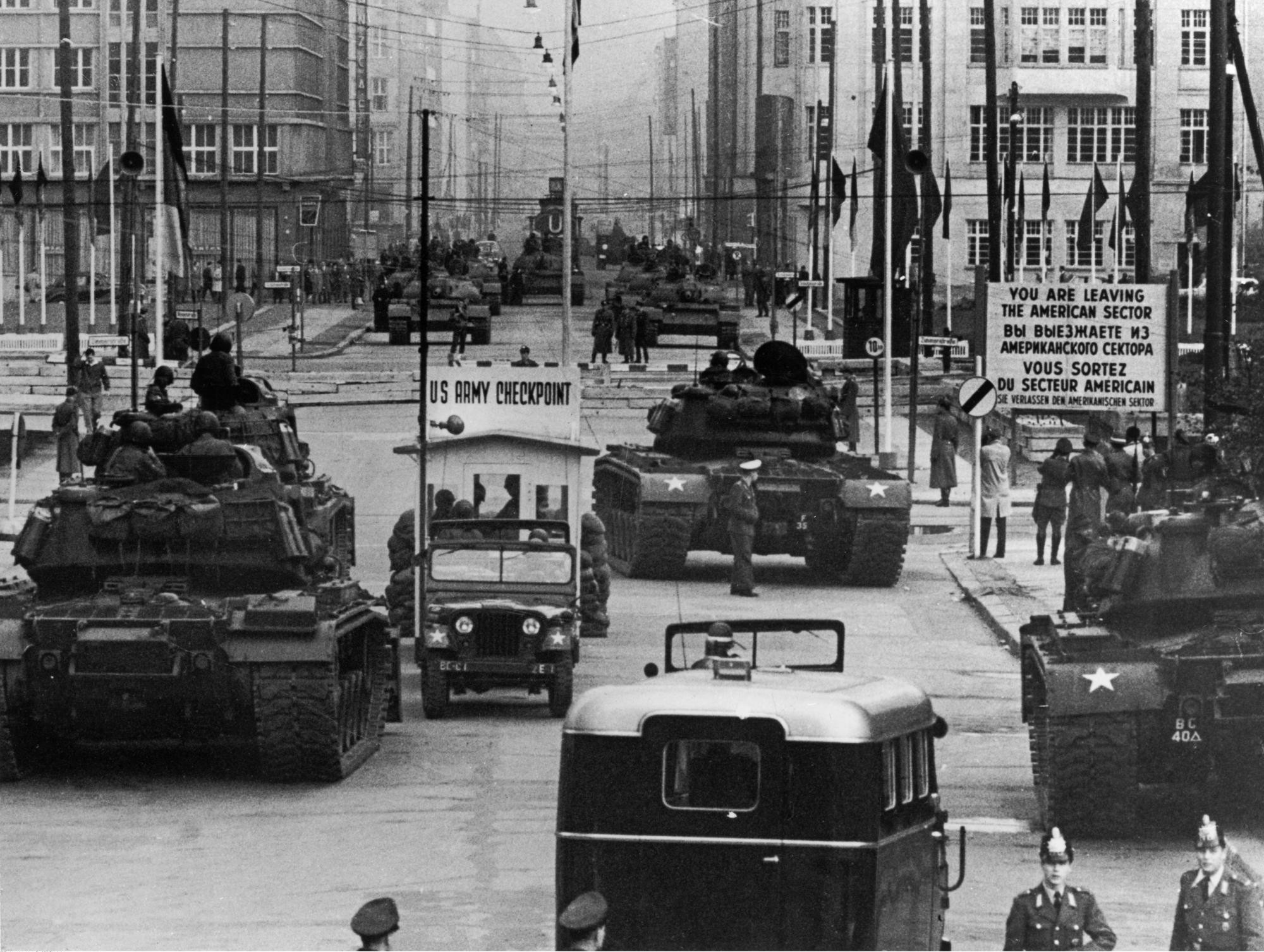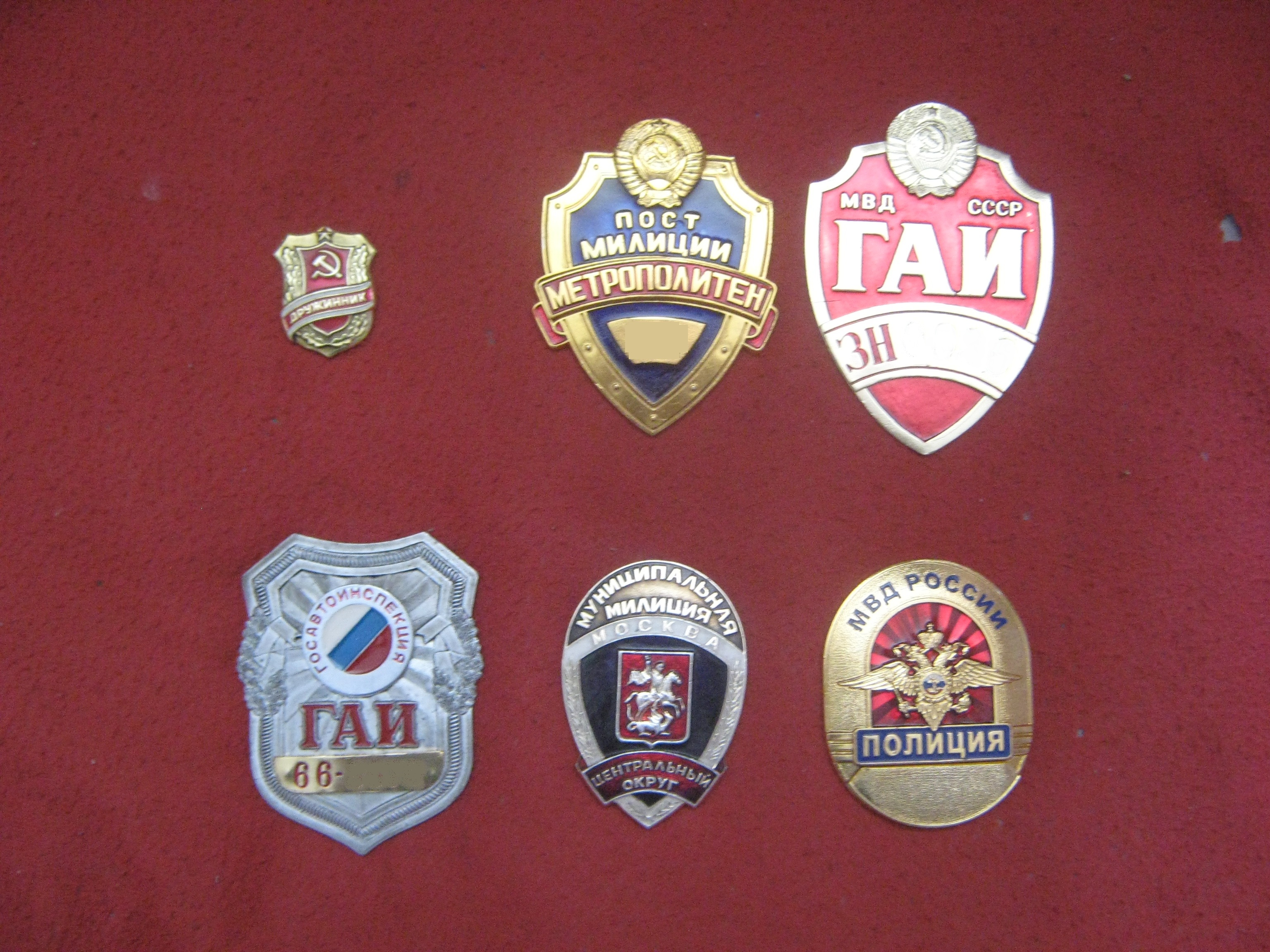|
Beware Of The Car
''Beware of the Car'' (russian: Береги́сь автомоби́ля, translit. ''Beregis Avtomobilya'', English titles ''Uncommon Thief'', or ''Watch out for the Automobile'') is a 1966 Soviet crime comedy drama film directed by Eldar Ryazanov, based on a screenplay by Emil Braginsky and produced by Mosfilm. It stars Innokenty Smoktunovsky, Oleg Yefremov, Andrei Mironov and Anatoli Papanov, among others. ''Beware of the Car'' is recognized as a satire of the film noir genre, highly unusual in Brezhnev- -era society. It is credited for launching Soviet political satire as a film genre, typified by Ryazanov's work. Plot Yuri Detochkin (Smoktunovsky) is a humble Soviet insurance agent who steals fancy cars from corrupt Soviet officials and scammers, disappointed by the militsiya being unable to fight the crooks. One of Detochkin's victims is Dima Semitsvetov (Mironov), a retail embezzler mocked but tolerated by his colorful father-in-law Semyon Vasilyevich (Papanov), a ... [...More Info...] [...Related Items...] OR: [Wikipedia] [Google] [Baidu] |
Eldar Ryazanov
Eldar Aleksandrovich Ryazanov (russian: Эльдар Александрович Рязанов; 18 November 1927 – 30 November 2015) was a Soviet and Russian film director, screenwriter, poet, actor and pedagogue whose popular comedies, satirizing the daily life of the Soviet Union and Russia, are celebrated throughout the former Soviet Union and former Warsaw Pact countries. Biography Eldar Aleksandrovich Ryazanov was born in Samara. His father, Aleksandr Semyonovich Ryazanov, was a diplomat who worked in Tehran. His mother, Sofya Mikhailovna (née Shusterman), was of Jewish descent. In 1930, the family moved to Moscow, and soon his parents divorced. He was then raised by his mother and her new husband, Lev Mikhailovich Kopp. In 1937 his father was arrested by the Stalinist government and subsequently served 18 years in the correctional labour camps. Ryazanov began to create films in the early 1950s. In 1955, Ivan Pyryev, then a major force in the Soviet film industry, sugges ... [...More Info...] [...Related Items...] OR: [Wikipedia] [Google] [Baidu] |
Leonid Brezhnev
Leonid Ilyich Brezhnev; uk, links= no, Леонід Ілліч Брежнєв, . (19 December 1906– 10 November 1982) was a Soviet Union, Soviet politician who served as General Secretary of the Communist Party of the Soviet Union, General Secretary of the Communist Party of the Soviet Union between 1964 and 1982 and Chairman of the Presidium of the Supreme Soviet between 1960 and 1964 and again between 1977 and 1982. His 18-year term as General Secretary was second only to Joseph Stalin's in duration. Brezhnev's tenure as General Secretary remains debated by historians; while his rule was characterised by political stability and significant foreign policy successes, it was also marked by corruption, inefficiency, Era of Stagnation, economic stagnation, and rapidly growing technological gaps with the West. Brezhnev was born to a working-class family in Kamianske, Kamenskoye (now Kamianske, Ukraine) within the Yekaterinoslav Governorate of the Russian Empire. After the re ... [...More Info...] [...Related Items...] OR: [Wikipedia] [Google] [Baidu] |
Yevgeny Yevstigneyev
Yevgeny Aleksandrovich Yevstigneyev (russian: Евгений Александрович Евстигнеев; 9 October 1926 — 4 March 1992) was a prominent Soviet and Russian stage and film actor, theatre pedagogue, one of the founders of the Moscow Sovremennik Theatre. He was named People's Artist of the USSR in 1983 and awarded the USSR State Prize in 1974. Early years Yevgeny Yevstigneyev was born on 9 October 1926 in Nizhny Novgorod, Russian SFSR (modern day Nizhny Novgorod Oblast of Russia) into a poor working-class family and spent his childhood at the outskirts in the Volodarsky village.''Yevgeny Yevstigneyev and a collective of authors (2017)''I'm Alive...— Moscow: AST, 288 pages He was a late child of Maria Ivanovna Yevstigneyeva (née Chernishova), a milling machine operator, and a metallurgist Aleksandr Mikhailovich Yevstigneyev who was twenty years older than her and who died when Yevgeny was six years old. Maria Ivanovna married another man who died when Yevgen ... [...More Info...] [...Related Items...] OR: [Wikipedia] [Google] [Baidu] |
Georgiy Zhzhonov
Georgiy Stepanovich Zhzhonov (russian: Гео́ргий Степа́нович Жжёнов, ; 22 March 1915 – 8 December 2005), was a Soviet and Russian stage and film actor and writer. He is known for playing the spy Mikhail Tulyev in the "Resident" quartet of films, ''Beware of the Car'' (1966), '' The Hot Snow'' (1973), and many others, and was a popular actor. He was appointed People's Artist of the USSR in 1980. Early life and education Zhzhonov's parents grew up in a peasant family from the Tver Region. His mother was his father's second wife, and there were five children in this family. They moved to the city and his father opened his own bakery, but never became wealthy. Zhzhonov was born on 22 March 1915, and, like many of his peers, finished school in grade seven. He then studied acrobatics at the Leningrad College of Circus and Estrada Arts, and started to give performances with a friend. There he was spotted by film director Eduard Ioganson in 1932, and asked him ... [...More Info...] [...Related Items...] OR: [Wikipedia] [Google] [Baidu] |
Olga Aroseva
Olga Aleksandrovna Aroseva (russian: О́льга Алекса́ндровна Аро́сева; 21 December 1925 – 13 October 2013) was a Soviet and Russian actress whose career spanned more than 65 years. Aroseva was better known for her work in theater and for her voice work in animated television shows. In the years before her death, she was best known as a hostess of the Russian educational and variety show ''Long Time No See''. Her movie roles included ''Beware of the Car''. Death Aroseva died on 13 October 2013, aged 87, in Moscow, from undisclosed causes. Selected filmography ;Actor * ''The Girl Without an Address'' (Девушка без адреса, 1957) as ''Neighbor'' * ''Beware of the Car'' (Берегись автомобиля, 1966) as ''Lyuba, a trolley-bus driver'' * ''Trembita'' (Трембита, 1968) as ''Parasya'' * ''Two Days of Miracles'' (Два дня чудес, 1970) as ''Alfa Kokoshkina'' * ''Grandads-Robbers'' (Старики-разбойники ... [...More Info...] [...Related Items...] OR: [Wikipedia] [Google] [Baidu] |
Lyubov Dobrzhanskaya
Lyubov Ivanovna Dobrzhanskaya (russian: Любо́вь Ива́новна Добржа́нская; 24 December 1905 — 3 November 1980) was a Soviet singer and actress of theater and cinema. She won the Stalin Prize II degree in 1951 and the People's Artist of the USSR Award in 1965. She is best known for her roles in films ''Beware of the Car'' (as Detochkin's mother) and ''The Irony of Fate'' (as Zhenya's mother). Biography Dobrzhanskaya was born to a noble family on December 24, 1905 in Kiev. In 1923-1924 she studied at the theater studio. In 1934 she began acting in the Russian Army Theatre in Moscow where Aleksey Popov had a great influence on her art. She participated in various concerts. Her performances of romances enjoyed great success. She was also the author of Leonid Utyosov's song ''Under the Spring Foliage''. She was married four times but had no children. Lyubov Dobrzhanskaya died on November 3, 1980 in Moscow. She was buried at the Vagankovo Cemetery Vag ... [...More Info...] [...Related Items...] OR: [Wikipedia] [Google] [Baidu] |
Orphanage
An orphanage is a Residential education, residential institution, total institution or group home, devoted to the Childcare, care of orphans and children who, for various reasons, cannot be cared for by their biological families. The parents may be deceased, absent, or abusive. There may be substance abuse or mental illness in the biological home, or the parent may simply be unwilling to care for the child. The legal responsibility for the support of abandoned children differs from country to country, and within countries. Government-run orphanages have been phased out in most developed countries during the latter half of the 20th century but continue to operate in many other regions internationally. It is now generally accepted that orphanages are detrimental to the emotional wellbeing of children, and government support goes instead towards supporting the family unit. A few large international charities continue to fund orphanages, but most are still commonly founded by sm ... [...More Info...] [...Related Items...] OR: [Wikipedia] [Google] [Baidu] |
Hamlet
''The Tragedy of Hamlet, Prince of Denmark'', often shortened to ''Hamlet'' (), is a tragedy written by William Shakespeare sometime between 1599 and 1601. It is Shakespeare's longest play, with 29,551 words. Set in Denmark, the play depicts Prince Hamlet and his attempts to exact revenge against his uncle, Claudius, who has murdered Hamlet's father in order to seize his throne and marry Hamlet's mother. ''Hamlet'' is considered among the "most powerful and influential tragedies in the English language", with a story capable of "seemingly endless retelling and adaptation by others". There are many works that have been pointed to as possible sources for Shakespeare's play—from ancient Greek tragedies to Elizabethan plays. The editors of the Arden Shakespeare question the idea of "source hunting", pointing out that it presupposes that authors always require ideas from other works for their own, and suggests that no author can have an original idea or be an originator. When ... [...More Info...] [...Related Items...] OR: [Wikipedia] [Google] [Baidu] |
Fear Of Commitment
In self-help literature, fear of commitment is the avoidance of long-term partnership and/or marriage. In popular culture and in psychology, the concept is often much more pervasive and can affect an individual's school, work, and home life as well. The term "commitmentphobia" was coined in the popular self-help book ''Men Who Can't Love'' in 1987. Following criticism that the idea was Sexism, sexist, implying only men were commitmentphobic, the authors provided a more gender balanced model of commitmentphobia in a later work, '' He's Scared, She's Scared'' (1995). When aversion to marriage involves fear, it's called "scottophobia". Hatred of marriage is "misogamy".Ben-Rafael, Eliezer, and Sasha Weitman. "The reconstitution of the family in the kibbutz." European Journal of Sociology 25.01 (1984): 1-27. Criticism Besides the self-help#Criticism, common criticisms of self-help, psychologist Bella M. DePaulo has written books on singlism such as ''Singlism: What it is, why it matter ... [...More Info...] [...Related Items...] OR: [Wikipedia] [Google] [Baidu] |
Dacha
A dacha ( rus, дача, p=ˈdatɕə, a=ru-dacha.ogg) is a seasonal or year-round second home, often located in the exurbs of post-Soviet countries, including Russia. A cottage (, ') or shack serving as a family's main or only home, or an outbuilding, is not considered a dacha, although some dachas recently have been converted to year-round residences and vice versa. The noun "dacha", coming from verb "davat" (''to give''), originally referred to land allotted by the tsar to his nobles; and indeed the dacha in Soviet times is similar to the allotment in some Western countries – a piece of land allotted, normally free, to citizens by the local government for gardening or growing vegetables for personal consumption. With time the name for the land was applied to the building on it. In some cases, owners occupy their dachas for part of the year and rent them to urban residents as summer retreats. People living in dachas are colloquially called ''dachniki'' (); the term usually ... [...More Info...] [...Related Items...] OR: [Wikipedia] [Google] [Baidu] |
Soviet Army
uk, Радянська армія , image = File:Communist star with golden border and red rims.svg , alt = , caption = Emblem of the Soviet Army , start_date = 25 February 1946 , country = (1946–1991)' (1991–1992) , branch = , type = Army , role = Ground warfare, Land warfare , size = 3,668,075 active (1991) 4,129,506 reserve (1991) , command_structure = , garrison = , garrison_label = , nickname = "Red Army" , patron = , motto = ''За нашу Советскую Родину!(Za nashu Sovetskuyu Rodinu!)''"For our Soviet Motherland!" , colors = Red and yellow , colors_label = , march ... [...More Info...] [...Related Items...] OR: [Wikipedia] [Google] [Baidu] |
Militsiya
''Militsiya'' ( rus, милиция, , mʲɪˈlʲitsɨjə) was the name of the police forces in the Soviet Union (until 1991) and in several Eastern Bloc countries (1945–1992), as well as in the non-aligned SFR Yugoslavia (1945–1992). The term continues in common and sometimes official usage in some of the individual former Soviet republics such as Belarus, Tajikistan, Uzbekistan and Kyrgyzstan, as well as in the partially recognised or unrecognised republics of Abkhazia, South Ossetia, Transnistria, DNR and LNR. Name and status The name ''militsiya'' as applied to police forces originates from a Russian Provisional Government decree dated April 17, 1917, and from early Soviet history: both the Provisional Government and the Bolsheviks intended to associate their new law-enforcement authority with the self-organisation of the people and to distinguish it from the czarist police. The militsiya was reaffirmed in Russia on October 28 (November 10, according to the ne ... [...More Info...] [...Related Items...] OR: [Wikipedia] [Google] [Baidu] |




.jpg)

